Industry Pageturners: Books Being Read By Music Business Major Players
After reaching out to numerous people in and around the music business, Glenn Peoples here shares their collective recommended reading lists, featuring a diverse selection of tomes exploring technology, entertainment, popular science, and more.
______________________
Guest post by Glenn Peoples, Music Insights and Analytics @ Pandora, of Medium
Time to put your Amazon gift cards to good use.
I reached out to people around the music business and asked them for titles of books they’re reading, or have been reading, and what they’d like to recommend to people.
The responses are diverse list of titles about technology, music biographies, entertainment, popular science, and various works of both fiction and non-fiction. You should be able to find something you’d like.
Thank you to the respondents. If I reached out to you and didn’t get a response, I’d happily receive your late submission and update this post.
It seems that most people have a desire to read more but lack the time. (Has anybody made a resolution to read more in 2018?) Hopefully this list spurs you to spend more time being informed and entertained by the written word. If you’re looking a place to start, consider a handful of titles with multiple appearances on readers’ lists:
Streaming, Sharing, Stealing. Big Data & the Future of Entertainment by Michael D. Smith & Rahul Telang. A book about data written by two college professors with consulting experience that inform the insights. Highly recommended for people interested in the way data will shape digital entertainment in the coming years.
The Attention Merchants: The Epic Scramble To Get Inside Our Heads by Tim Wu. Written by the professor who coined the phrase “net neutrality.” A history of advertising from its beginnings through today’s attention economy.
How Music Got Free by Stephen Witt. A well-reported, fascinating look at the digital revolution in music. This deservedly received glowing reviews.
Born to Run by Bruce Springsteen. No, not the Born to Run book about running, although that comes with my recommendation. Rolling Stone called Springsteen’s book an “utterly unique, endlessly exhilarating, last-chance-power-drive of a memoir.”
Move Fast Break Things: How Facebook, Google and Amazon Cornered Culture and Undermine Democracy by Jonathan Taplin. The Director Emeritus at the Annenberg Innovation Lab at USC, Taplin argues these large technology companies “have stymied innovation on a broad scale.”
Jem Aswad. Senior music editor, Variety
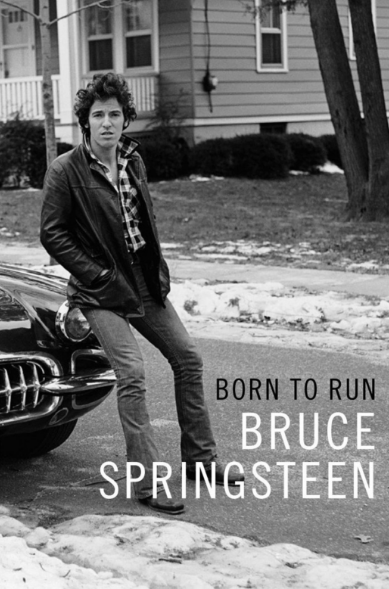
Born to Run by Bruce Springsteen. Long but very entertaining and insightful even for non-superfans.
Allen Klein: The Man Who Bailed Out the Beatles, Made the Stones, and Transformed Rock & Roll by Fred Goodman. A clear-eyed look at a much-maligned music-biz genius.
How Music Got Free by Stephen Witt. A frequently dense but fascinating look at the digital revolution in music.
The Song Machine by John Seabrook. A deep and illuminating dive into the biology and psychology of hit songs.
David Bowie: Any Day Now, the London Years 1947–74 by Kevin Cann. An encyclopedically thorough timeline/bio
Ryan Chisholm. Artist management, A&R at Nettwerk Music Group
Born to Run by Bruce Springsteen. I have to admit, I’m not a die-hard Bruce Springsteen fan. I read this book based on the suggestion of Rob Light. I say read incorrectly since I consumed via Audible [Editor’s note: hey, that counts] but in my opinion, there’s no better way to read this book because Bruce himself is the narrator. I can’t tell you how often I flipped from Audible to Spotify to listen to specific songs mentioned in the book. It was a unique and incredible experience. I recommend this book heavily on Audible.
When I Stop Talking, You’ll Know I’m Dead: Useful Stories from a Persuasive Man by Jerry Weintraub. Narration by Weintraub provides an unparalleled experience to hear the author read you his own stories. It’s as if you hear his diary from his lips. As a relatively young executive in this business I feel like it’s my responsibility to read up on the titans of our business and Jerry Weintraub is probably one of the greatest.
Powerhouse: The Untold Story of Hollywood’s CAA by James Miller. Depending on who you talk to you will probably get different opinions about this book. I’ve listened to it twice on Audible and find it incredibly motivating. I don’t strive to emulate Michael Ovitz, but I do have a tremendous amount of respect for what he and the others built (CAA). This book doesn’t cover a lot of music specific history, but it’s still a great read for anyone looking to have a deeper knowledge of the entertainment industry as a whole.
They Call me Supermensch: A Backstage Pass to the Amazing Worlds of Film, Food & Rock ’n’ Roll by Shep Gordon. By now almost all of us have either seen the documentary on Netflix, read the book, or heard Shep speak about a lot of these stories on specific podcasts. Shep is incredibly inspiring and one of the best marketers on the planet. Be careful sharing this book or documentary with artist though… they will undoubtedly want to try and create some crazy marketing/publicity stunt!
Ted Cohen. Managing partner, TAG Strategic
The 100 Year Life: Living and Working in an Age of Longevity by Lynda Gratton and Andrew Scott. This book totally embraces my irrational desire not to slow down! I know that I have much more to accomplish. It addresses work/life balance without suggesting I sit on a cliff in Malibu and chant three hours a day.
Russ Crupnick. Managing Partner, MusicWatch
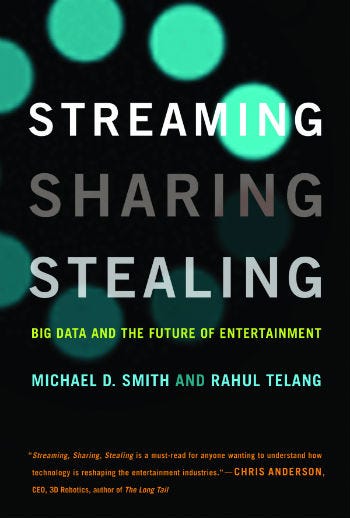
Streaming, Sharing, Stealing; Big Data and The Future of Entertainment by Rahul Telang and Michael Smith [the authors are Carnegie Mellon professors]. Telang and Smith are not only academics but have also consulted on the topics covered, and the writing reflects practical experience. The book is a journey through the evolution of entertainment and how technology, mostly data, is changing the relationship between stakeholders including studios, labels, artists, and distributors. Many of the themes will be familiar to readers who have lived through the shift from physical to digital. The author’s assessment of the role of data in assessing these themes sets the book apart from typical writings about the evolution of technology.
Smith and Telang open with a conversation about House of Cards and Netflix; how Netflix used data on DVD rental preferences, affinity for Kevin Spacey movies and viewership of David Fincher movies to greenlight the series. In fact, Netflix believed in the data so much it made a 26-episode commitment. That commitment, it is said, impacted the creative approach to the series. The book concludes with discussions about the market power of data and how companies such as Spotify and Amazon deploy their data to gain competitive advantage.
Stuart Dredge. Freelance writer, contributing editor at Music Ally.
I’ve been thinking a lot about wellbeing this year, and part of that has been trying to get out of the work/tech bubble — particularly in the evenings — by losing myself in fiction. My reading list has lots of modern sci-fi and fantasy novels.
Children of Time by Adrian Tchaikovsky
Uprooted by Naomi Novik
The End of the Day by Claire North
River of Gods by Ian McDonald. I can’t recommend it highly enough.
The first three books kept me out of my inbox and sparked all kinds of neglected synapses. The fourth, River of Gods, was the same, but some of its sparks — what AI entertainment has become in the future India as well as a neural spin on personalized playlists — did lead back to some of the topics I’m thinking about at work.
Martin Frascogna. Frascogna Entertainment Law
I just re-read two books. I keep them both on rotation, but they’re somewhat dated.
How Music Works by David Bryne
Successful Artist Management by Xaver by Michael Frascogna (i.e. my Father) H. Lee Hetherington
Brian Frank. Owner of BFrank Management Inc (FIDLAR, Ra Ra Riot, The Frights)
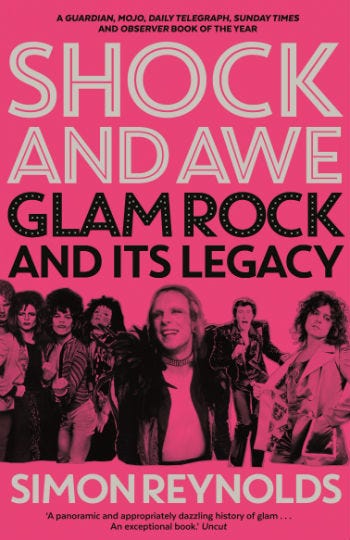
Shock and Awe: Glam Rock and Its Legacy, From the Seventies to the Twenty-first Century by Simon Reynolds At 704 pages, Reynolds’ attempt at capturing the entirety of glam rock is a worthy effort. I thoroughly enjoyed the detailed analysis and narratives of the well-known names and not-as-well-known names that spearheaded and participated in this musical phenomenon. My only disappointment came when trying to find some of the recordings on streaming services in the U.S. and coming up empty. Reynolds’ storytelling motivated an appreciation of some previously overlooked gems. Immediately upon completing Shock And Awe I read David Weigel’s The Show That Never Ends: The Rise and Fall of Prog Rock, so I completed the alpha and omega of the 70s.
Gretchen Fox. CEO and founder, MTO agency & MTO EDU
Tools of Titans: The Tactics, Routines, and Habits of Billionaires, Icons, and World-Class Performers by Tim Ferris. One of the best books I’ve read in the last year for all sorts of professionals. It’s motivational, it’s insightful, and it offers a lot of great tactical advice.
Nick Gordon. Founder, The Beat NYC
Deep Work by Cal Newport. Deep Work explores the science that underlies productive thinking and accelerated learning (the type required to switch careers or learn a new field) and makes a strong case for removing ourselves from our modern distraction-rich lifestyle in favor of long periods of focused application. It seems obvious, but once read, one realizes how our ADD culture scientifically opposes accomplishing deep work.
Traction by Gabriel Weinberg and Justin Mares. Focusing on start-ups, Traction helps entrepreneurs identify marketing channels and narrow down the ones that are most likely to be successful for their business model, thus conserving energy and removing the temptation to compete in all channels — which, for 99% of start-ups, is impossible from a resources perspective.
Craig Havighurst. Journalist and news producer. Author of Air Castle of the South: WSM and the Making of Music City
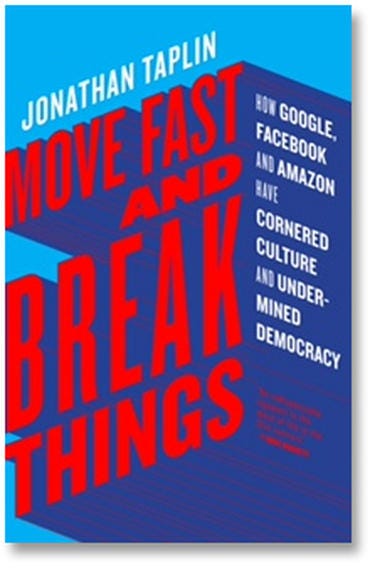
Move Fast Break Things: How Facebook, Google and Amazon Cornered Culture and Undermine Democracy by Jonathan Taplin. I’d give it a B or B-. It had some fair warnings about monopoly power over search and web ads, but it wasn’t all that revealing or even-handed. The founders and early builders of the internet hoped and promised it would be a decentralized and democratic marketplace of ideas and information. But according to Jonathan Taplin’s dire analysis, a handful of self-interested and amoral corporations — Google, Facebook and Amazon especially — have monopolized the key revenue generating parts of the internet. In so doing, they’ve deprived creators in journalism, art, and entertainment from anything remotely resembling fair compensation. They’re choking off very the future of ideas. Taplin’s stature as former head of the USC Annenberg Innovation Lab and his history with certain internet and entertainment moguls make it worth the read. But there’s something unremittingly negative and almost personal about his analysis as if the internet we’ve enjoyed over 25 years hasn’t also been a source of cultural renaissance and revelation and connection.
The People’s Platform: Taking Back Power and Culture in the Digital Age by Astra Taylor. A similar take to Taplin, though her weakness was the strain of her argument that seems to say because the Internet amplified reactionist, sexist and racist voices, the Internet must have been designed wrong.
David Israelite. President and CEO, National Music Publishers Association
Essential Poker: Fundamental No-Limit Hold ’Em Mathematics You Need to Know by Alton Hardin
Alexander Hamilton by Ron Chernow
David & Goliath: Underdogs, Misfits, and the Art of Battling Giants by Malcolm Gladwell
Days of Fire: Bush and Cheney in the White House by Peter Baker
Tales From Q School: Inside Golf’s Fifth Major by John Feinstein
Will Kimbrough. Singer-songwriter, producer
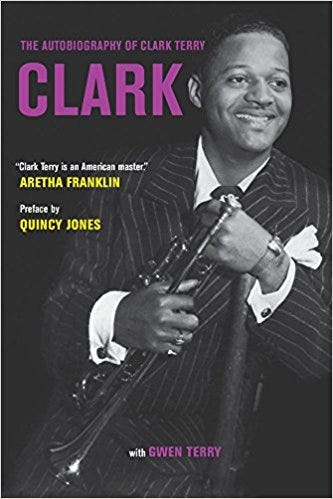
Clark: The Autobiography of Clark Terry by Clark Terry. Clark is a wonderful read for any fan of music and anyone hungry for a little-overlooked slice of history. Clark Terry was one of the greatest trumpet and flugelhorn players of all time. He was the trumpet player’s trumpet player. Miles et al adored his technique, feel and tone. Terry worked with everyone: Basie, Ellington, Holiday, Sarah Vaughan, you name them, he played with them.
The most interesting thing about the book was something I never knew: Clark Terry was the first African American musician hired by NBC Television in New York. I was surprised. Even though the greatest jazz music had already been being played and recorded by African American musicians since before 1920, it still took until 1960 for NBC Television—in New York, mind you—to hire Clark Terry. Amazing. You think you know about race in America, but there is so much to learn.
Another great thing about this book is its tone: pure Clark Terry, a mix of playful, sincere, intelligent, and at times bordering on raunchy. The great jazzman’s voice comes through on every page. He loved Duke Ellington, Count Basie, Miles Davis, Ben Webster, Gerry Mulligan, Billie Holiday, and so many of his talented and legendary peers. Terry’s disdain for racism comes through, as well, though not in a bitter and angry tone; Terry scoffs merely at the ridiculous and pointless nature of racism. He would know since he grew up Jim Crow era.
Jeff Liebenson. Liebenson Law and president of the International Association of Entertainment Lawyers
In all candor, I would recommend our IAEL books. We release an annual book at each Midem on the most compelling issues facing our quickly changing music industry, featuring contributions from our members and other leading legal and industry figures.

Tech: Disruption and Evolution in the Entertainment Industries. This addresses how next-generation tech is driving new ways of consuming, creating and interacting with entertainment content and supporting innovation behind the scenes. It tackles how intellectual property, data protection, and other laws regulate and facilitate those technologies, providing a global view on how tech disruption and evolution are impacting the industry.
The Monetization of the Global Music Business. The 2016 volume focuses on how music monetization is rapidly changing as new models emerge, others consolidate and some traditional revenue streams simply dry up. It concentrates on where we are now and where the future may lead us, from streaming to block-chaining and copyright reversion to collective licensing, addressing the commercial, technical and legal solutions emerging in that new landscape.
The Streaming Revolution in the Entertainment Industry from 2015 devoted to the emergence of streaming as the principal means of exploiting and monetizing music and its emerging licensing and royalty issues. It addresses the strategic direction and the overall economics of streaming, the tough new issues is raises, and the challenges in obtaining the necessary rights.
Craig Marks. Editorial director, Townsquare Media. Co-author of I Want My MTV: The Uncensored Story of the Music Video Revolution
Liner Notes: On Parents & Children, Exes & Excess, Death & Decay, & A Few of My Other Favorite Things by Loudon Wainwright III. A mordant memoir from folk-rock super-WASP. He’s as terrible a husband and father as he is wonderful a songwriter, and he writes engagingly about all of it.
Righteous: An IQ Novel by Joe Ide. New urban LA noir, featuring a brilliant but emotionally damaged private investigator named IQ. Fans of George Pelecanos and Michael Connelly will swoon.
Betsy McHugh. Co-founder and CEO, Hurdl
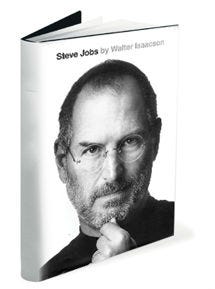
Steve Jobs by Walter Isaacson. Two years into a startup, managing, fixing, building, blocking, tackling, surviving, twisting, turning, falling on my knees, and getting back up again — I found myself leaning on engineer logic and missing the forest for the trees. It was my role to see the horizon and I was stuck in the rules. I needed to get my head into a space where I could be free to think as big as possible. So instead of taking LSD, I figured I’d read about a guy who did. I read the book differently than I would have when it came out. What I found were little nuggets of permission to explore without a ceiling.
Mark Bittman’s Kitchen Matrix by Mark Bittman. I had spent decades working day and night as an artist manager come tech entrepreneur, and didn’t realize the power of taking time to think. This book is not only stunningly creative, it showed me there’s a huge connection between cooking and being an entrepreneur — the joy of making something out of nothing. And no, each meal isn’t delicious, nor is every day of being a tech founder. But Bittman made me appreciate the ingredients, the process, and the learnings in between.
Larry Miller. Clinical music associate professor and director, music business program, New York University
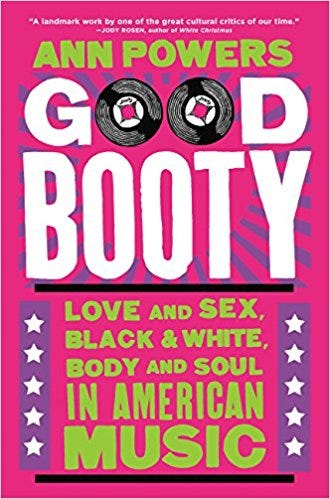
Good Booty by Ann Powers. I can’t imagine how anyone but Ann Powers could write so clearly and powerfully on how the themes of sex and race have dominated popular music for two centuries. Epic storytelling.
Will Page. Director of economics, Spotify
The Numbers Game: Why Everything You Know About Soccer Is Wrong by Chris Anderson and David Sally. Learning about how economics is applied to the field of sports can be really rewarding if you want to improve your economic skills in music and media. Learning why zero is greater than one in soccer, (as conceding no goals is worth more than scoring at least one), helps you abstract what is a tactic and what constitutes a strategy. Similarly, for some soccer managers, such as Pep Guardiola, possession is everything. For others like José Mourinho, possession is nothing — he wants to beat you on the break. Read this now and the forthcoming Manchester derby will be a whole different ballgame.
Glenn Peoples. The guy who put together this list.
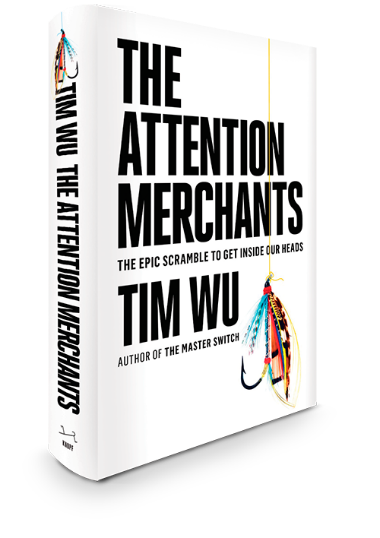
The Attention Merchants: The Epic Scramble To Get Inside Our Heads by Tim Wu. I’m about a sixth of the way through and enjoying this history of advertising in the U.S. We are consumers. Brands want our attention.
Streaming, Sharing, Stealing; Big Data and The Future of Entertainment by Rahul Telang and Michael Smith. A great book full of insights into current and future uses of data in the streaming of music and video. Highly recommended.
Copyrights and Copywrongs: The Rise of Intellectual Property and How It Threatens Creativity by Siva Vaidhyanathan. A good read and an unexpected pick given the book is 16 or 17 years old. Lately I’ve been reading books published from 2000 to 2005, around the time of Napster, growing Internet access, and the budding battle over how copyright law and society would treat digital entertainment for years to come. Fun to read knowing how the next decade-plus turned out.
Matt Pincus. CEO, SONGS Music Publishing
I’m on the third book of the Elena Farrante Neapolitan novels. I like epic reads that are character studies.
Present Shock: When Everything Happens by Doug Rushkoff. That was my holiday read.
Jeff Price. CEO and founder, Audium
Blindness by Jose Saramago. It left me with a feeling that years later I cannot shake. Insightful, deep and intimate to what I hoped would be a purpose that I cannot yet identify. It makes me think.
The Cider House Rules by John Irving. Irving does not waste a word. My favorite contemporary fiction novel. The characters are so well developed with an intricate and relevant story line that brings you to heart-warming/breaking conclusion. It makes me feel.
The Elegant Universe: Superstrings, Hidden Dimensions, and the Quest for the Ultimate Theory by Bryan Greene. Trying to make sense out of existence through science.
Benji Rogers. CEO & co-founder dotBlockChain Media; founder, PledgeMusic
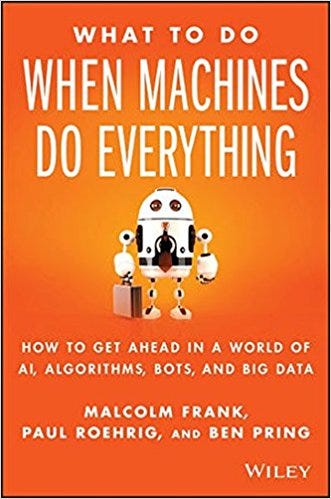
What To Do When Machines Do Everything by Malcolm Frank, Paul Roehrig & Ben Pring. To my mind this is required reading for individuals and companies looking to navigate the fourth industrial revolution and one of the most significant I have read in a long time. It’s both optimistic and realistic and has moved the needle for me pretty far in terms of how I think about the music and media industry moving forward.
Ian Rogers, Chief Digital Officer at LVMH [ex-Apple Music, ex-Topspin]
Sapiens: A Brief History of Humankind by Yuval Noah Harari
The Emperor of All Maladies: A Biography of Cancer by Siddhartha
Mukherjee [Editor’s note: winner of the 2011 Pulitzer Prize for General Non-Fiction]
Whiplash: How to Survive Our Faster Future by Joi Ito and Jeff Howe
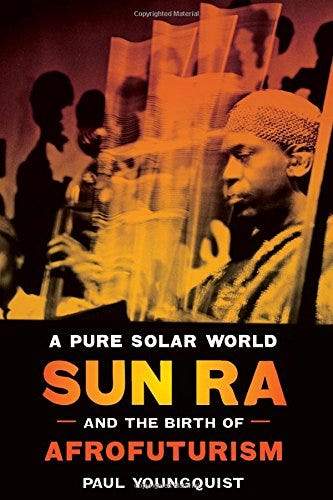
A Pure Solar World: Sun Ra and the Birth of Afrofuturism (Discovering America) by Paul Youngquist
The Gene: An Intimate History by Siddhartha Mukherjee
The Attention Merchants: The Epic Scramble To Get Inside Our Heads by Tim Wu
Cary Sherman. Chairman and CEO, RIAA
Sticky Fingers: The Life and Times of Jann Wenner and Rolling Stone Magazine by Joe Hagan.
World Without Mind: The Existential Threat of Big Tech by Franklin Foer
Streaming, Sharing, Stealing. Big Data & the Future of Entertainment by Michael D. Smith & Rahul Telang
Democracy of Sound. Music Piracy and the Remaking of American Copyright in the Twentieth Century by Alex Sayf Cummings
How Music Got Free: A Story of Obsession and Invention by Stephen Witt
Fire and Rain. The Beatles, Simon & Garfunkel, James Taylor, CSNY, and the Lost Story of 1970 by David Browne
Drew Thurlow. SVP A&R, Sony Masterworks
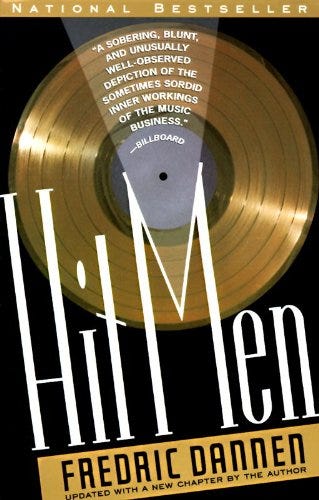
The Hit Men by Fredric Dannen.
I never had never read this music industry staple until my new co-workers at Sony suggested it. The book was entertaining, but I’m don’t know how much of its stories apply to today’s business—and I think that’s a good thing. [Editor’s note: this is a classic. If you haven’t read it, find a copy on eBay or Amazon Marketplace.]
Move Fast Break Things: How Facebook, Google and Amazon Cornered Culture and Undermine Democracy by Jonathan Taplin.
Jonathan Taplin’s thesis is that the big Silicon Valley companies, while creating opportunities and efficiencies for consumers, ultimately stifle creators and are dangerous for democracy. He likens them to the robber baron companies of the industrial ages and calls for Congress to help break up their monopolies. It was an interesting and insightful perspective and ultimately somewhat terrifying.
Endurance: A Year in Space, a Lifetime of Discovery by Scott Kelly
Endurance is a memoir from astronaut Scott Kelly who spent a year in space. I love astronaut autobiographies for two reasons. First, astronauts are so inspirational because of the odds and obstacles they have to overcome just to become astronauts. Second, from the glamorous and flashy to the mundane, I love all things about space travel and living in space.